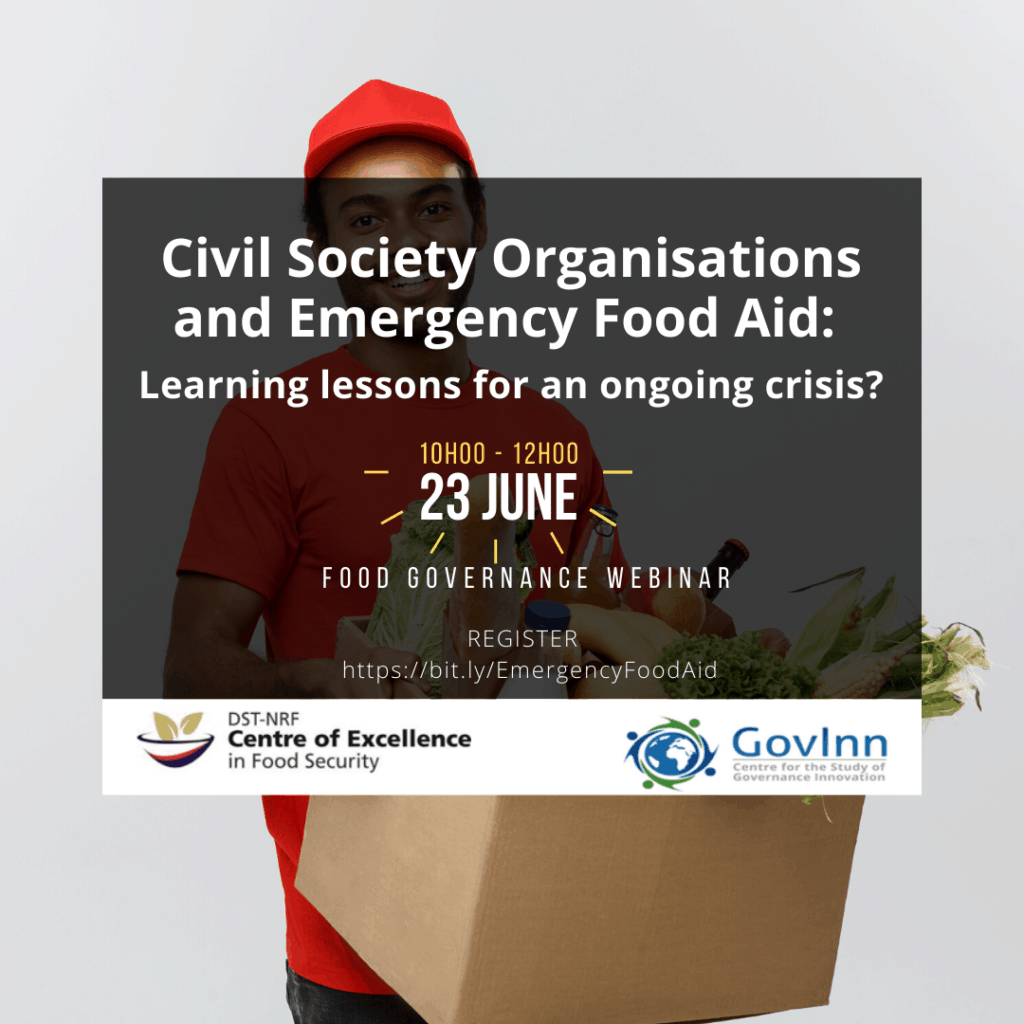Time: 10h00 - 12h00
Venue: Live on Zoom & Facebook

Panellists:
- Andrew Boraine (CEO – WCEDP and coordinator of the NGO-Government Food Relief Coordination Forum);
- Mymoena Scholtz (Where Rainbows Meet Training and Development Foundation);
- Henriette Abrahams (Bonteheuwel Street Committee);
- TBC (Black Sash);
- Andy Du Plessis (Food Forward);
- Egbert Wessels (PEDI);
- Nandi Msezane (C19 Peoples’ Coalition – Food Working Group).
Panelists will discuss the recent mobilisation of Civil Society Organisations (CSOs) around the food security problem under lockdown and explore how these organisations have worked together, and with government, in a valiant attempt to provide a shared solution to an acute problem in a time of crisis. The meeting will also explore what the legacy of this mass CSO/ NGO mobilisation might be for local food governance in South Africa.
Under lock down food insecurity has sky rocketed into an acute and visceral problem that can no longer be ignored. In Cape Town alone it is estimated that 1.6 million people and approximately 500 000 households are likely to require some form of food aid. The demand for emergency food aid has stretched the infrastructure and networks of both government and CSOs. In addition to a few large and more medium sized NGOs, an army of hundreds, possibly thousands, of small and community based CSO/ NGOs have assisted, including CANs (Community Action Networks) and community food kitchens. New networks and governance platforms have sprung up to provide coordination. For example, weekly CSO-government food relief coordination meetings in the Western Cape have been facilitated by the Economic Development Partnership (EDP).
This is not only a tremendous human response to a desperate crisis but also a potentially significant moment in food governance in the country. Prior to the lockdown, one of the factors thought to be preventing greater momentum behind achieving the right to food in South Africa was the lack of CSO mobilisation on the issue. Although food insecurity was recognised as a problem by some academics, government officials and CSOs, it was previously a hidden problem that did not garner widespread public attention or demands for change. But has this now changed? What are the challenges facing these organisations? How can they play a sustainable role in food governance beyond the Covid crisis? What do they need to do this? How can they be supported?
Register here: https://bit.ly/EmergencyFoodAid
Related content: Click below to listen to a podcast from the Informal Food Traders Webinar, held on 28th April 2020.
For more information please contact: camilla.adelle@up.ac.za 083 260 4703.
Upcoming Events
Our GOALS
We recognise that producers, processors, distributors and consumers are incorporated into the food system under varying terms and returns. We also recognise the economic, social, human and environmental health impacts associated with food security. Therefore our goal is to conduct research, build capacity and disseminate findings that will promote a sustainable food system in South Africa.
Our MISSION
Our research is concerned with the scale, nature, causes and consequences of food insecurity in South Africa and elsewhere on the African continent. Thus our mission is to investigate products, technologies, processes and policies that can reduce food insecurity and mitigate its negative outcomes. We seek to make a difference to food security by linking innovative science with critical enquiry.



